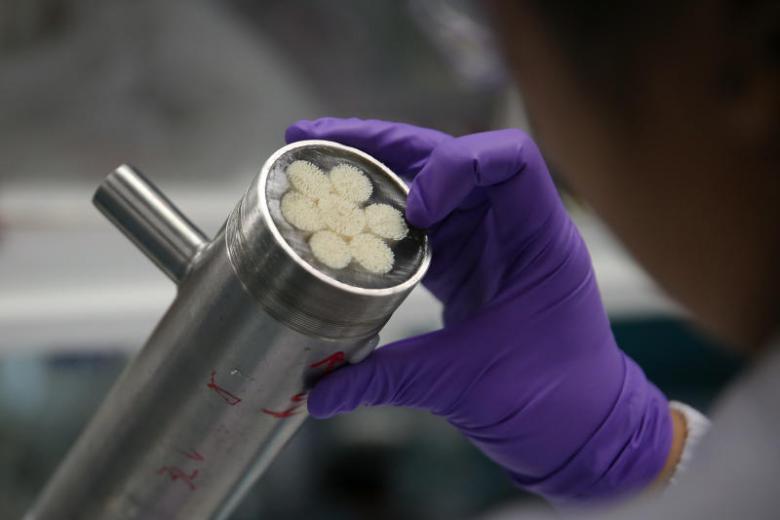SINGAPORE - The Republic's ability to create drinking water from the sea and used water using state-of-the-art membrane technology has been recognised internationally. But now the Government wants to push membranes even further.
To spur research and adoption of membrane technology beyond the water sector, into areas ranging from biomedical to food and beverage, the National Research Foundation (NRF) launched a national consortium on Monday (Feb 5).
The Singapore National Membrane Consortium (SG-MEM) will bring together universities, government agencies and companies - including multinationals (MNCs), start-ups and small and medium-sized enterprises (SMEs) - to come up with solutions for various sectors.
The NRF's director of programmes George Loh said: "The SG-MEM Consortium provides the platform for SMEs, which are not in the water sector, to have access to membrane technologies for applications in diverse sectors including food and beverages, fragrance and medtech. This will help our SMEs benefit from the latest technologies to grow their business."
The consortium will focus on five sectors: energy, pharmaceuticals, food and beverage, biomedical and water.
For instance, membrane technology could be used to concentrate and purify products in food and drink, and create controlled drug delivery systems.
Fifteen companies including Shell, Sembcorp and pump manufacturer Grundfos have joined the consortium as founding members.
Companies who join the consortium will get to manufacture, assemble and test membranes at the facilities of research institutes here. SG-MEM will also organise workshops to give research institutes and industry representative the chance to interact.
The consortium will be governed by a steering committee, which will be chaired by Dr Adil Dhalla, managing director of the Separation Technologies Applied Research and Translation (Start) centre at the Nanyang Technological University. It will decide on the direction, strategy and work plan of the consortium.
A Technical Management Committee will be chaired by Professor Gary Amy, coordinator of the Membrane Science and Technology Consortium (MSTC) at the National University of Singapore.
Mr Andreas Kroell, chief executive officer and director of De.mem, a Singapore-based SME specialised in industrial waste water treatment, said it is a "great asset" to have the ability to follow research, technology and innovation trends and have strong support from the Singapore Government through the consortium.
"This is particularly important for a company like ours, which is growing quickly but still limited in terms of resources and manpower compared to larger MNCs," he said.

